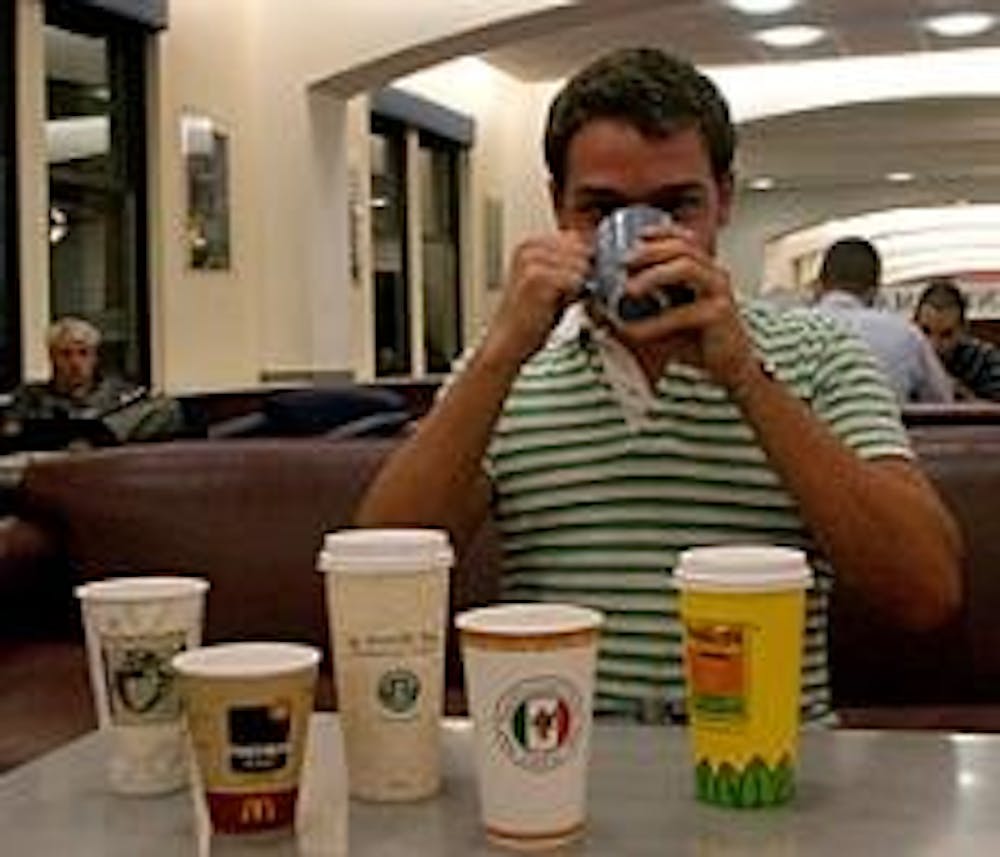With the stress of school and homework, many students turn to caffeine in the form of coffee, soda and other foods, but according to a recent study by the American Beverage Association, caffeine may not be as addictive as previously thought.
According to recent studies, caffeine is not found to be an addictive substance. It may be habitual, but there is a distinct difference between habitual and addictive, according to the Coffee Science Information Centre.
In addition, The American Psychiatric Association stated that caffeine does not meet the criteria associated with drug addictions.
Adriana Martinez, a junior in the School of International Service, disagrees with those who say coffee will become the next addictive product, similar to cigarettes.
According to Sarah Hynes, a registered nurse at the Student Health Center, caffeine is both a physical and psychological addiction. For those who need to have their daily intake of caffeine, a withdrawal can produce symptoms such as major headaches and irregular sleeping patterns.
Some also feel nervousness without their daily dose of coffee, and when the case is severe, caffeine can cause severe palpitation, significantly increasing the heart rate, according to Hynes.
"Students come in with fatigue, and that's when I'll ask them about their sleep cycle and I'll ask them how much caffeine they're drinking," Hynes said.
Allie Lee, a graduate student in the School of Communication, said caffeine is more a psychological addiction to her.
"It just makes me feel better at the time I drink it," she said.
Jessica Staff, a freshman in the College of Arts and Sciences, said caffeine is a combination of both physical and psychological dependence.
"A lot of people think they need caffeine because it helps them stay awake, but I think that it helps them less than they think it does," she said. "I do think that if you use it enough, it will become a chemical addiction."
Davenport barista and SIS junior Mary Pappin said she feels sometimes people drink so much coffee it has no effect on them at all.
On the other hand, coffee is not only used as a stimulant, but as a relaxing substance, as seen by the many students who enjoy a cup of coffee and a book on the Davenport couches.
"A lot of people drink for energy, but it's really something to drink while you chat," Martinez said.





